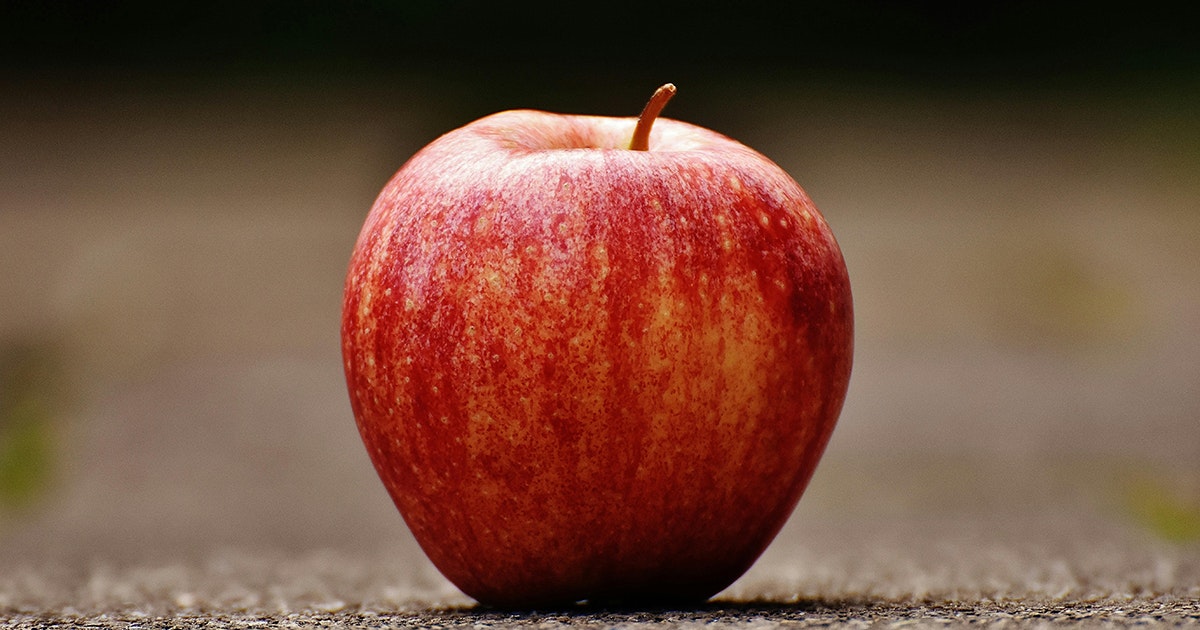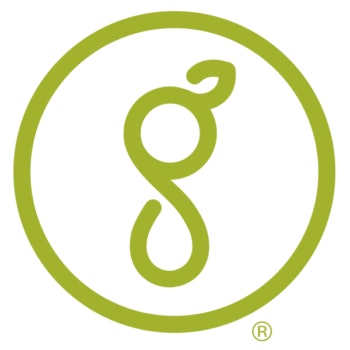Yes, apple juice has iron, but in insignificant amounts -- much less than some other fruit and vegetable juices. The exact amount of iron in apple juice can vary depending on factors such as the apple variety, the brand of juice, and how it's processed. Most nutrients are destroyed during pasteurization, while cold-pressed apple juice retains all the goodness. On average, an 8-ounce cup of pure apple juice contains about 0.298 milligrams of iron.
But don't let the low iron content in apples deter you from making apple juice a part of your healthy diet routine. Let no one call an apple humble. After all, they have featured in our lives forever, from fairy tales like Snow White, to Newton's scientific discovery of gravity.
We all know the saying “An apple a day keeps the doctor away,” and whether that is factually true or not, apples have many properties that can improve health and wellness. In this article, we'll discuss those properties, and also show you how to use other juices to boost the iron content of your apple juice.
Health Benefits of Apple Juice
Not only are apples commonly enjoyed by many cultures across the globe, they also offer many health benefits. Pure apple juice is a low-calorie beverage that is also low in sodium, fat, and cholesterol. Apples contain vitamin C, dietary fiber like pectin, and minerals like potassium, copper, calcium, and magnesium. Here’s more:
- Hydration: 88% of an apple is water, making apple juice a great way to stay hydrated while providing the benefits of its entire nutritional profile.
- Phytonutrients: Apple juice is a rich source of phytochemicals, like quercetin and flavonoids, and epidemiological studies have linked the consumption of apples with reduced risk of some cancers, cardiovascular disease, asthma, and diabetes.
- Antioxidants: Our bodies have complex antioxidant defense systems, but they are not perfect, and oxidative damage will occur. Both cardiovascular disease and cancer are thought to be particularly oxidative stress-related. In the laboratory, apples have been found to have powerful antioxidant activity, which can prevent oxidative stress. When compared to many other commonly consumed fruits in the United States, apples had the second-highest level of antioxidant activity.
- Reduced Cholesterol Levels: Studies found that eating two to three medium-sized apples per day, or drinking their cold-pressed 100% pure juice, resulted in decreased total cholesterol levels. The results indicated that the pectin and polyphenols in apples most likely contributed to the improved cholesterol levels.
- Brain Protection: Studies have shown the brain boosting properties of apples and apple juice. Here is what a researcher from the Center for Cellular Neurobiology; Neurodegeneration Research University of Massachusetts says: “These findings provide further evidence linking nutritional and genetic risk factors for age-related neurodegeneration and suggest that regular consumption of apple juice can not only help to keep one’s mind functioning at its best, but may also be able to delay key aspects of Alzheimer’s disease and augment therapeutic approaches.”
- Boost Iron Absorption: Plant-based iron, such as that contained in apples, is non-heme iron, which is not as readily absorbed by the body as heme iron found in animal products. However, vitamin C enhances iron absorption, and drinking apple juice while consuming iron-rich plant-based foods or juice can improve the absorption of non-heme iron.
Iron Absorption Explained
According to experts, there are two types of dietary iron: heme and nonheme iron.
- Nonheme iron comes from plants and iron-fortified foods.
- Heme iron comes from animal food sources.
Our bodies do not absorb nonheme iron as easily as heme iron.
The National Heart, Lung, and Blood Institute advises that we can help our bodies absorb more iron by consuming more vitamin C.
According to Michigan State University, one way of doing this is to add vitamin C-rich ingredients like apples or apple juice to iron-rich juices or smoothies.
Iron-Rich Juice Options
If you want to increase your iron intake from sources other than animal products, you don’t have to give up the awesomeness of apple juice in favor of other iron-rich juices. The vitamin C in the apple juice helps convert the non-heme iron in, for example, Swiss chard into a more absorbable form, thereby increasing the overall iron uptake by the body.
You can mix vitamin C-rich apple juice into any of the following iron-rich fruit or vegetable juices:
- Watermelon: This summer staple offers a lot more than its hydrating properties. Its high iron content makes watermelon juice one of the best fruit juices for increasing hemoglobin.
- Berries: When it comes to non-heme iron sources, raspberries, blackberries, blueberries, strawberries, cranberries, and even mulberries, if you can find them, deserve to be on your shopping list. They are all adequate sources of vitamin C as well.
- Dates: Fresh dates are a nourishing option as a juice ingredient. Not only are they rich in iron, but they’re also an excellent way of adding sweetness as an alternative to sugar.
- Figs: Although figs are not loaded with iron, they are an interesting juice ingredient, and they have enough iron to enhance hemoglobin levels in the blood.
- Plums: Although plums, or prunes, may be best known for their mild laxative effects, they are also a rich source of iron. On average, an 8-ounce cup of fresh prune juice provides the body with about 3 mg of iron.
- Spinach: Spinach is one of the best plant sources to give your green juice an iron boost.
- Kale: Kale is another leafy green vegetable that contains a significant amount of iron. It can be combined with other greens for a nutritious, iron-rich juice.
- Swiss Chard: This is another cruciferous veggie that can give your juice an iron punch.
- Beets: The vibrant color and natural sweetness of beets make them popular for juicing. However, both the beetroot and its greens can produce an iron packed juice.
- Parsley: Adding just a small amount of this flavorful herb to your juice blends can contribute to your iron intake.
- Spirulina: Not a fruit, nor a vegetable, but a type of blue-green algae that is loaded with concentrated iron. Spirulina has a strong flavor, but adding only a small amount to your apple juice can boost your iron intake.
Bottom Line
So, there you have it. Apple juice is not an effective way to meet your daily dietary iron requirements, but, hopefully, we’ve shown you that it is a valuable juice ingredient with many health benefits. Be creative and incorporate various nutrient-rich fruits and veggies into your juices, considering how different ingredients interact with each other and how they can help optimize nutrient absorption.


Comment